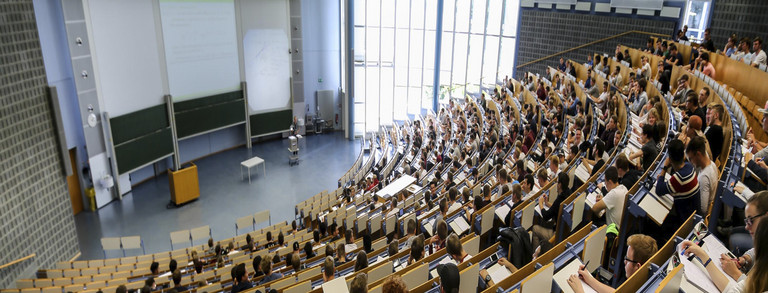Seminar "Microeconomics of Regional Economics"
| Module: | Module 1-11: Microeconomics II |
| Lecturer: | Prof. Dr. Lukas Buchheim M. Sc. Marcel Vögele |
| Scope / Credits: | 4 SWS / 7,5 Credits |
| Course type: | Seminar |
| Exam: | Term paper and presentation |
| Language: | English |
| Application: | email to marcel.voegeletu-dortmundde |
| Date and place: | Thursday, 12 p.m. - 2 p.m., M127 |
| Beginning: | October 12, 2023 |
| Interim presentation: | tba |
| Deadline for term paper: | tba |
Application
To register for the seminar, please send an email to marcel.voegeletu-dortmundde. This should also be accompanied by a current grade transcript from the BOSS.
Applications are still possible.
Contents overview
The field of regional economics is concerned with topics that relate economic activity (or human activity in general) with the spatial structure of the economy. The starting point for regional economics is the observation that economic activity does not take place in the same location: Jobs, businesses and housing are not distributed evenly across space. Disparities between regions can arise due to differences in geographic fundamentals or due to interactions on goods and factor markets (including the labor market). Regional economics explicitly accounts for the important role played by the spatial structure of the economy in affecting economic and social outcomes.
Typical questions asked within the field are: What determines the location of economic activity? What role do geography and history play in shaping the spatial structure? Why are some industries concentrated in certain areas? What explains urbanization? Why are some regions more successful than others? How can localized policies affect outcomes? How does structural change affect regions?
This course will predominantly deal with the more recent empirical literature in regional economics. This strand of the literature seeks to answer the questions outlined above using data. A special focus will be on the microeconomics of regional economics, i.e. our starting point are the spatial preferences and decisions of units such as individuals, households and businesses.
Learning goals
Students will be introduced to recent research in regional economics and learn about the econometric techniques used in the field. The main goal of the seminar is to get students engaged in (beginners-stage) scientific work in preparation for the Masters’ thesis. Interested students can choose to conduct replication analyses using existing data. Intensive guidance and supervision will be provided during the seminar.
Process
Information on the seminar schedule can be found under the topic "Seminars and scientific work".
In addition to the information regarding the seminar procedure described by the content after the link, there will be a few lectures in the beginning of the term. These lectures will be designed to familiarize students with the general types of reasoning they will find in their seminar topics and should help them working on their topics. The lecture content will not be part of the grade (but may, of course, indirectly affect the grade via the quality of the seminar paper and the presentation).


